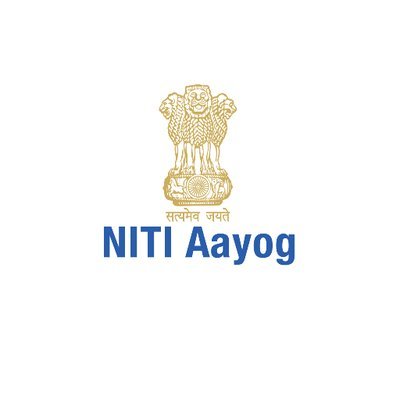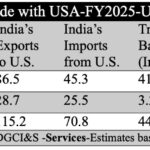A critical debate over India’s agricultural trade policy with the United States has escalated, following a government think tank’s proposal for significant tariff reductions on U.S. farm products. An independent analysis, however, sharply contends that such moves could fundamentally compromise India’s food security framework and imperil millions of farmers.
The NITI Aayog, a prominent government policy body, released a May 2025 working paper advocating for reduced import duties on a broad range of U.S. agricultural commodities, including rice, dairy, poultry, soybean derivatives, corn by-products, and genetically modified (GM) soybeans, citing strategic reciprocity and supply gap management.
Yet, the Global Trade Research Initiative (GTRI) has delivered a robust counter-analysis, asserting that this “market-access-first approach is deeply flawed and historically risky.” The GTRI report, released Tuesday, draws direct parallels to India’s experience in the 1960s and 70s, when zero-tariff commitments on staples like rice and wheat under GATT created long-term policy vulnerabilities. This historical precedent, GTRI argues, underscores the risk of India being forced into costly renegotiations and exposed to volatile global prices driven by heavily subsidized U.S. and EU exports.
The proposed tariff removal on key commodities such as rice and pepper is particularly contentious. GTRI highlights how global markets, distorted by significant subsidies from major agricultural exporters, could subject India’s more than 100 million smallholder farmers to disruptive price “boom-bust” cycles, mirroring crises observed in African agricultural systems.
Furthermore, GTRI warns that concessions on staples could fuel international industry challenges, notably from groups like the USA Rice Federation, against India’s vital domestic food security mechanisms, including its public food procurement and minimum support price (MSP) systems. This could weaken India’s defensive position in future WTO disputes.
The debate also extends to sanitary and phytosanitary (SPS) measures. NITI Aayog suggested replacing tariffs with SPS standards for dairy and poultry, but GTRI questions India’s current capacity to robustly implement and defend such complex norms at the WTO. This shift, they argue, could disproportionately benefit well-capitalized foreign producers while potentially disqualifying domestic Indian farmers from their own market.
A significant point of contention revolves around genetically modified imports. Despite NITI Aayog’s “controlled model” proposal for GM soybean seeds and corn by-products, GTRI views India’s fragmented logistics and weak regulatory oversight as critical impediments to effective containment. The report underscores a high risk of GM material contaminating domestic agriculture, potentially jeopardizing exports to GM-averse markets and inflicting severe reputational damage.
GTRI’s report concludes with a sharp call for caution, urging comprehensive, evidence-based consultations with state governments, farmer organizations, and trade experts. It stresses that tariff flexibility is not an outdated protectionist stance but a “vital strategic tool” for India’s food security and rural livelihoods, especially in an era of increasing global food market volatility. The think tank also presses NITI Aayog to transparently detail any asymmetries in the proposed FTA, particularly where India is expected to reduce MFN tariffs without reciprocal concessions from the U.S.






